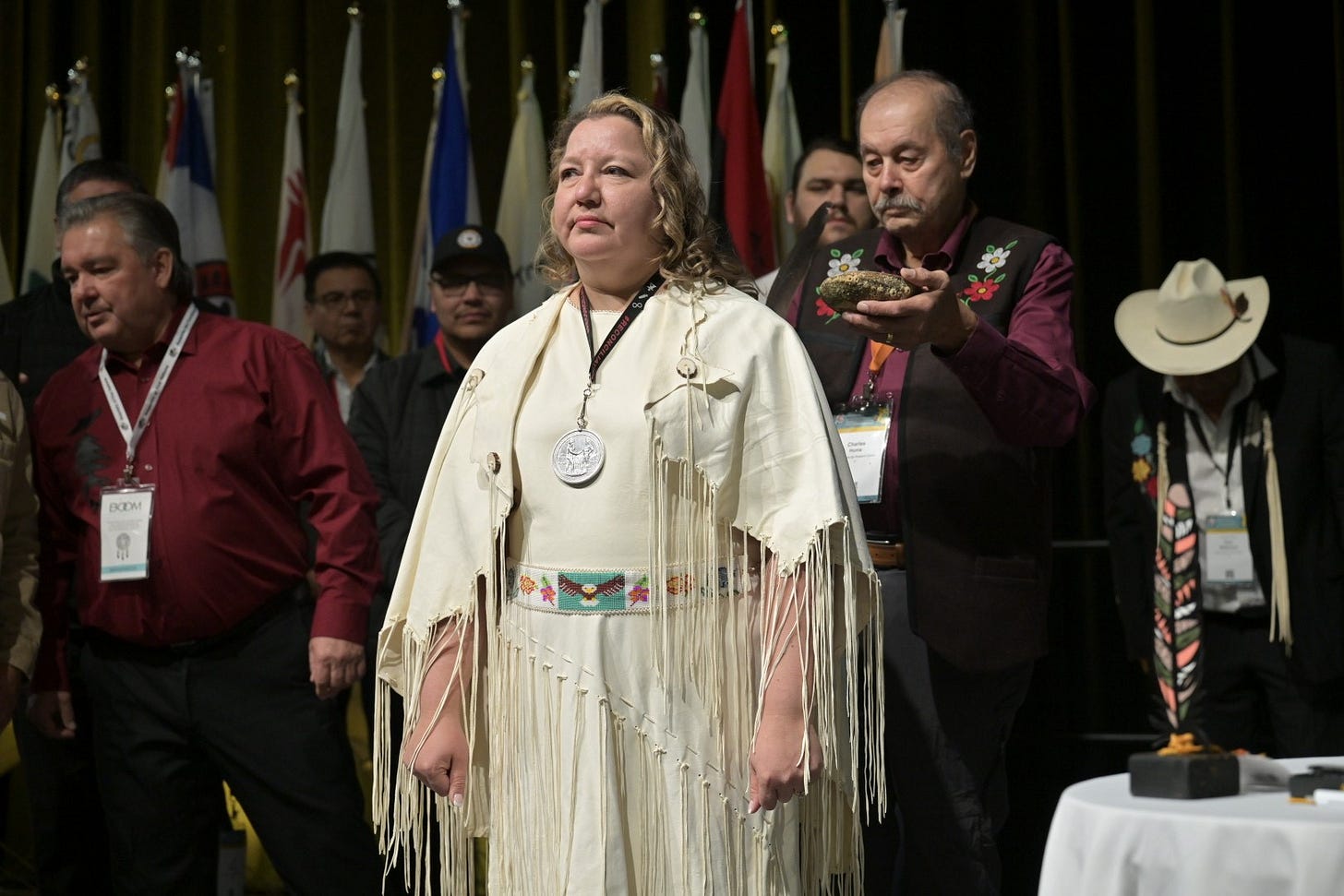Cindy Woodhouse elected as AFN national chief
After six ballots, runner-up David Pratt conceded defeat to the Manitoba regional chief.
A regional chief from Manitoba who led negotiations resulting in a $23-billion class action settlement with the federal government over on-reserve child welfare neglect has been elected national chief of the Assembly of First Nations (AFN).
Following six rounds of voting on Dec. 6, Cindy Woodhouse was declared the victor of the AFN special election, which was set in motion in July after former national chief Roseanne Archibald was ousted.
The AFN represents the interests of more than 600 First Nations across Canada. According to the AFN, 461 people voted in the election.
Woodhouse led each round of balloting, but was unable to declare victory until runner-up David Pratt, vice-chief of the Federation of Sovereign Indigenous Nations, conceded defeat.
Otherwise, voting would have continued until one of the two remaining candidates reached 60 per cent support in the AFN’s ranked ballot system.
“My role every day is going to be to answer the calls of our chiefs,” she said in her speech upon winning. “That’s the duty of the national chief.”
Pratt, in his concession speech, said that he didn’t want to prolong the voting process knowing the wide array of challenges First Nations people face, including housing, addictions and mental health.
“The issues are too important for us to hold back the next national chief from taking over,” he said, adding that he supports Woodhouse “110 per cent.”
In her victory speech, Woodhouse thanked Archibald — who was the first female AFN national chief — “because she smashed glass ceilings for all of us.”
Woodhouse voted in favour of Archibald’s ouster, which was the result of allegations of bullying and harassment in the former national chief’s office. Archibald strongly denies the accusations.
Woodhouse acknowledged that the AFN was coming out of a “dark period” of division.
She assured delegates, however, that “by ceremony, by prayers, by working together, by trying to find a new way … we can overcome some of those challenges.”
Woodhouse added that she intends on drafting a budget and sending it to every MP and federal government official in early 2024.
“There’s a growing gap in this country and they know it and we have to try and work together. We just have lots of issues to work on,” Woodhouse said.
In her campaign, Woodhouse, who hails from Pinaymootang First Nation in Manitoba, said there needs to be a “big discussion” with the federal government about Indigenous policing jurisdiction.
She was also critical of former Manitoba premier Heather Stefanson’s unsuccessful reelection campaign, in which Stefanson campaigned on her refusal to search a Winnipeg-area landfill for the remains of Indigenous women who are believed to have been victims of a serial killer.
Woodhouse said she accepted Stefanson’s public apology for running ads against searching the landfill, but cautioned that the former premier never apologized to the women’s families.
In a pre-election interview with APTN News, Woodhouse cited her role in negotiating the $23-billion child welfare class action settlement with the government, which includes an additional $20 billion to reform the child welfare system, as an example of her ability “to work on the issues and to get results for our people.”
A version of this piece originally appeared in Alberta Native News


